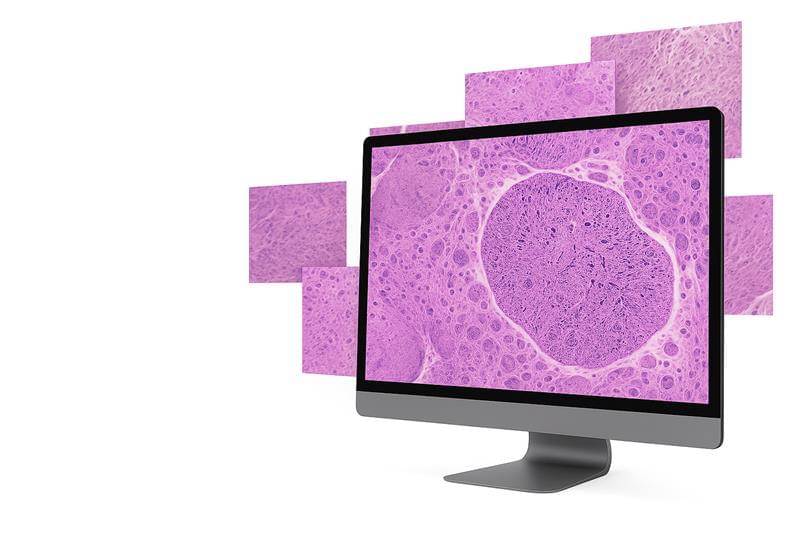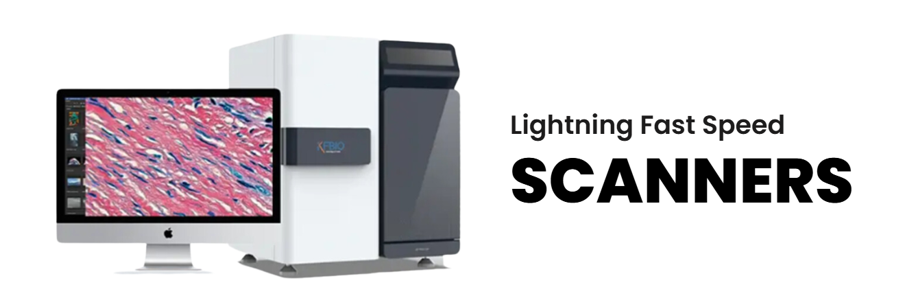Revolutionizing Digital Pathology
Slide Cloud is a interoperable, vendor neutral digital solutions provider focussing on end to end slide scanning and management solutions for digital pathology

Powerful Features
Comprehensive tools and capabilities designed to streamline your digital pathology workflow
Whole Slide Imaging
High-resolution scanning and processing of pathology slides with sub-micron precision
Collaborative Workspace
Real-time collaboration tools for pathologists and researchers worldwide
AI Integration
Advanced AI algorithms for automated analysis, diagnosis assistance, and workflow optimization
Cloud Storage
Secure, scalable storage for your digital pathology data with enterprise-grade security
Mobile Access
Access your slides anywhere with responsive design and mobile optimization
Security & Compliance
HIPAA compliant with enterprise-grade security and audit trails
Advanced Scanning Technology
RELIABLE
Our scanners are designed to work long hours with minimal down time. Both scanners and IT systems must be fail safe with built-in redundancy and failover for high output mission critical sites.
SCALABLE
We take a wholistic approach to planning, adopting and deploying WSI at scale, instead of single high-cost scanner deployments.
AFFORDABLE
Our network significantly reduces the cost of scanners yet offers some of the fastest speeds on the latest speeds.
Professional Scanning Solutions
SlideCloud at its core is an interoperable vendor-neutral suite of software solutions designed for digital pathology excellence. We have strategically partnered with leading hardware manufacturers to deliver comprehensive end-to-end systems. Our mission is to select partners who provide exceptional whole slide image scanning capabilities at scale while maintaining optimal cost-efficiency.

Whole Slide Imaging Technology
SlideCloud leverages cutting-edge whole slide imaging (WSI) technology to digitize conventional glass slides, creating high-resolution digital slides that enable remote pathology workflow and collaboration.
High-Resolution Scanning
Capture entire microscope slides at diagnostic resolution with sub-micron precision, supporting magnifications up to 40x with 0.25 μm/pixel resolution.
Pyramid Structure
Multi-resolution image pyramids enable rapid pan and zoom functionality, providing smooth navigation across massive datasets.
DICOM Compliance
Full DICOM compatibility ensures seamless integration with existing hospital PACS systems and regulatory compliance.
Advanced Compression
Efficient JPEG2000 compression reduces file sizes by up to 50x while maintaining diagnostic quality.
Our Pricing Packages
Flexible pricing plans designed to scale with your digital pathology needs and budget
All pricing is indicative, not final, and excludes VAT. For all packages, additional storage can be charged at a rate of $0.07 per GB. All packages have the opportunity to choose different support packages to meet your specific requirements. Additional sites to support charged at R5000 ($280) per month
Starter
- Maximum 5 pathologists
- Base price includes 3 pathologists
- $100 per additional pathologist
- 1 site supported in base cost
- 3TB base storage included
- Basic support package
Growth
- Maximum 15 pathologists
- Base price includes 10 pathologists
- $120 per additional pathologist
- 2 sites supported in base cost
- 5TB base storage included
- Basic support package
Custom
- Totally customized for each operator
- Unlimited users
- Custom development feature requests
- Development partner programme
- Custom features on demand
Get in Touch
Ready to transform your pathology workflow? Contact our team for a personalized consultation
Our Office
SlideCloud South Africa
Venture Workspace, 2nd Floor (S8)
The Sanctuary Mall
Corner De Beers Ave & Broadway Blvd
Somerset West, Cape Town, 7130
South Africa